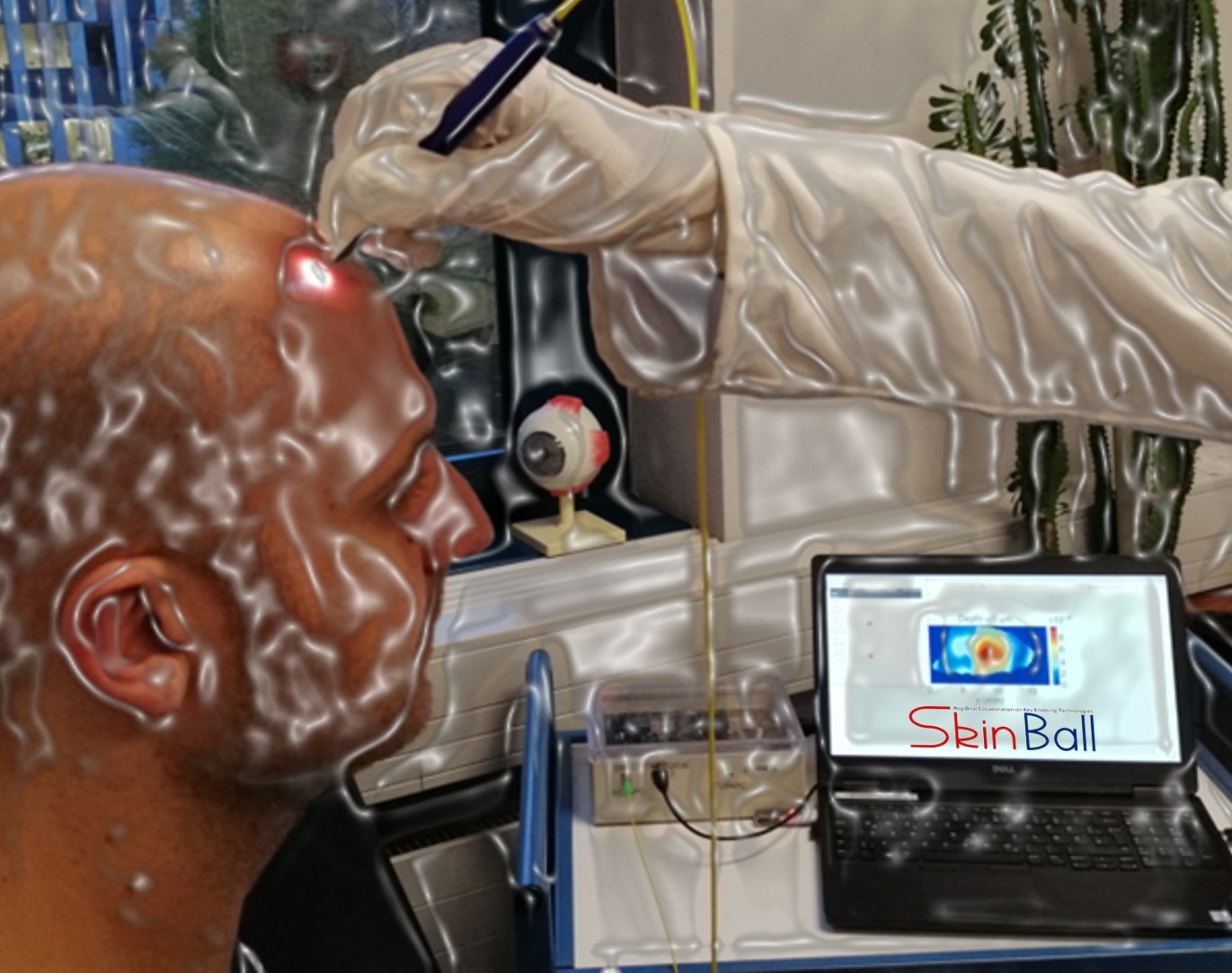Microwave Photonic GmbH (MWP) and Mintres BV jointly publish white paper on a novel photonic skin sensor for tumor detection. The development of the photonic skin sensor is financially supported by the European Union and the INTERREG partners. The development is the key target of the SkinBall project in the framework of the European INTERREG-V-A program ROCKET Reloaded.
Photonic sensor for skin-tumor detection
The white paper summarizes our work on the photonic sensor that is carried out in the SkinBall project. The targeted use case is health care. In SkinBall, we develop a mobile photonic instrument to enable more mobility in skin monitoring. Thanks to photonics, the instrument can be connected to the read-out computer using optical fiber. This allows flexibility required for mobile use. Eventually, we hope that registered doctors can use our instrument for in-vivo screening of their patient’s skin. This would be beneficial for two reasons: first to reduce the number of unnecessary biopsies and second to support early skin-cancer detection. Our sensor will also support in-vitro monitoring, e.g., screenings carried out by skin-cancer surgeons in specified clinics or in larger laboratories. “Here, we may assume a more powerful and reliable monitoring instrument compared to the manual observation,” predicts Microwave Photonics CEO Dr. Andreas Stöhr. “The idea is to measure the permittivity of skin.”
We hope a precise analysis of skin cancer can potentially provide sufficient data on the size and depth of the tumor. Especially for facial tumors, this may help to reduce unnecessary deep cuts or avoid multiple operations on the other hand. The instrument may then even allow plastic surgery to be carried out right after the cancer treatment in one surgical intervention, which would be a great relief for patients.
In order to realize the innovative concept, we collaborate with our key partner Mintres in the project. Mintres integrates a photonic InP chip from the Department of Optoelectronics from the University Duisburg-Essen on a CVD diamond carrier. This so-called chip-on-carrier (CoC) device helps to manage thermal Joule-heating in the remote sensor head. Mintres then provides the photonic CoC chip to Microwave Photonics for packaging and integration. The University Hospital Essen supports the SkinBall project with their expertise on skin cancer and help to analyze the measured spectroscopic and image data.

